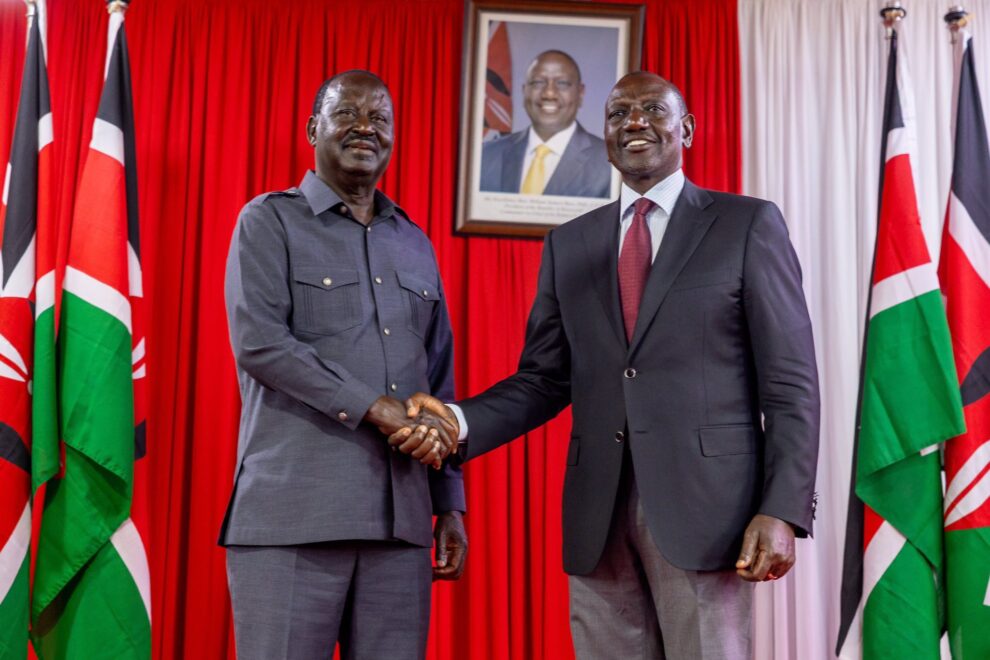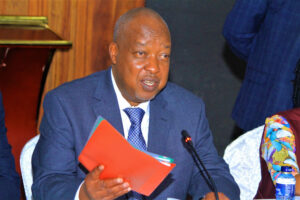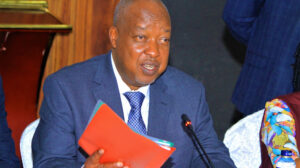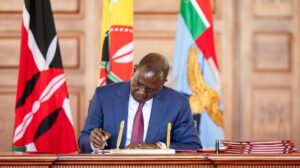In a move that could reshape how Kenya conducts its presidential elections, President William Ruto and opposition leader Raila Odinga have come together to support a bill that would take away the exclusive powers of the IEBC chairperson in announcing the presidential results.
This plan, already tabled in the Senate, aims to share the responsibility with all 290 constituency returning officers. While the stated goal is to increase transparency and speed, many fear it’s a political handshake that could dangerously weaken the role of the electoral body and open the door to manipulation.
The idea was quietly introduced through the National Dialogue Committee (NADCO) report and is being championed by Senator Okong’o Omogeni.
According to the proposal, the long-standing role of the IEBC chairperson as the sole authority to declare the presidential winner will be eliminated. Omogeni argues that all returning officers at the constituency level should handle this task instead. He explained during a Citizen TV interview that this shift would decentralize power and make the process more transparent.
However, critics believe this change could increase chances of interference and lead to inconsistent or contested results.
The bill goes further by proposing that presidential votes be prioritized in the counting process. It suggests that during general elections, the presidential vote be tallied and announced first, even before MCA, MP, or governor results.
The plan sets a target for results to be declared by 11 am the following day. Although this may sound like a step toward efficiency, it raises concerns that the pressure to meet such a strict timeline could lead to chaos or manipulation.
Removing the national tallying centre’s central authority may reduce oversight and increase the risk of tampering at the grassroots level.
One of the major worries is that giving declaration power to 290 different officials makes the process less secure. It’s harder to monitor all of them, and if some are compromised, the entire election could be called into question.
Supporters of the bill point to the confusion during the 2022 elections as proof that a change is needed. But critics argue that the real motive behind the bipartisan support is to distribute responsibility and avoid individual blame in future contested elections.
In the past, the IEBC chairperson was a key figure, often acting as the final voice in hotly contested polls. After the Supreme Court nullified the 2017 elections, the importance of the chair’s legal power became even clearer.
Reducing this authority might seem like reform, but it also spreads out accountability. That could make it easier for powerful political players to influence outcomes without facing direct consequences.
Another element in the proposal is the inclusion of international auditors to verify results in real time, similar to what is done in South Africa. While this sounds progressive, some see it as a tactic to make the plan look fair while hiding its real intention.
Omogeni said the IEBC should focus on training its officers better, but even the best training cannot make up for a flawed system. Without a strong central authority, real transparency may never be achieved.
This proposal represents one of the biggest changes to Kenya’s election laws in decades. It promises speed and fairness but may lead to confusion, mistrust, and even unrest.
Kenya’s elections have always been highly sensitive, and taking away the IEBC chair’s final say in announcing results could remove one of the few safeguards the country has.
Kenyans need to think carefully about who benefits from it and whether it truly serves the public. Weakening the IEBC chair’s powers may look like reform, but it could end up shaking the foundation of Kenya’s democracy.





















Add Comment